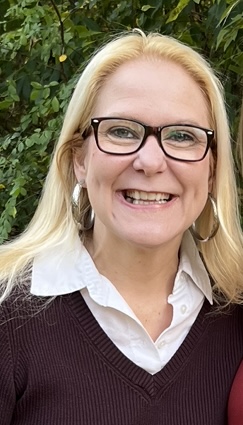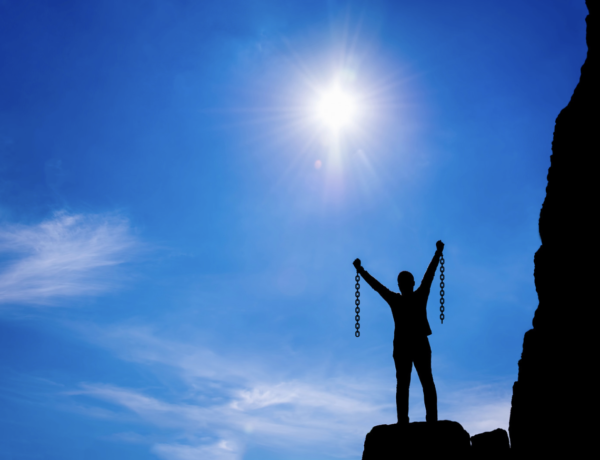Prison is really, really hard on families.
Lawyers, ex-offenders, and people who watch a lot of movies told me, “Do not let your family do your time with you.”
My mom totally did my time with me.
We were ridiculously codependent. She carried the phone to the bathroom with her in case I called at an unscheduled time. I think in a year’s worth of daily phone calls, she missed only two. She wrote frequently. She sent books. She put money in my commissary account. As soon as visitation was allowed, she and my dad traveled four hours to visit me once a month. It’s a lot to ask of a loved one— something I appreciate much more now that I’m on the other side.
My dad also wrote frequently, usually providing updates on his doctor’s appointments and telling me that he was proud of me. He came to almost all the visits with my mom and showed his support by letting us talk and by paying for the Diet Cokes and peanuts. My dad and I didn’t talk on the phone, so he didn’t know anything about my current bunkie, what classes I was taking, or when I felt afraid or uncomfortable. I see now that what felt like a disconnect was actually probably a healthy boundary.
I was honest with my mom about most of what went on at Lockhart. I don’t know if I would have been honest if there had been more violence or drug use. When I was at Plane State, where those things were happening, my communication with the outside world was limited.
I had seen the movies where someone makes a jailhouse visit and sees their loved one with a black eye or a razor-blade cut. I have since heard from incarcerated male friends that when they fought, they attempted to take punches to the chest or areas where a wound wouldn’t be visible during a visit. So that’s a real thing. It just, fortunately, wasn’t my thing.
I did let my mom and some friends know when a bipolar woman in 2 Alpha didn’t like me. This girl was mentally ill and a former professional boxer (not a great combination, in my experience). She told me I thought I was better than her, and she wanted to teach me a lesson. She would embarrass me in front of people, throw things at me, threaten to break my glasses, and tell me never to leave my personal items unattended because she would flush them down the toilet. She also constantly asked me to meet her in the showers so she could box me off-camera.
She never actually fought me, broke my glasses, or flushed my books, though. They were just threats. I even had another friend, a sweet former drug addict, tell me she had my back and would never let anything happen to me. I believed her, and I often shared my snacks with her to keep that protection in place. My “bodyguard” is home from prison, and we’re still friends to this day. I’ve looked up the bipolar boxer, and she’s fallen off the grid. I hope she’s OK and not dealing drugs or trafficking humans.
Knowing that my mom was afraid for my safety, even briefly, while I was in prison allowed me to relearn how to care for people more than I care for myself. Maybe it wasn’t necessary to tell her everything.
During the “snowpocalypse” of February 2021, we lost power. The phones were down. The water wasn’t running. We couldn’t flush toilets or take showers. The roads were so icy that prison guards couldn’t leave at the end of their shifts. They slept in the gym or in empty segregation cells.
The dorm stank, and the people in it stank.
The Lockhart Unit does not have open windows, but many of the older Texas Department of Criminal Justice units do. The windows are small, and some have a single bar on them. One might be able to stick a hand out, but the window is too high to retrieve anything from the other side. Stray cats can, and do, slide through those barred windows.
I had heard that when the power goes out at one of those old units in Gatesville, the women use the bathroom in potato chip bags and throw them out the window. So at any given time during a power outage, there might be a pile of feces in the yard amid the debris of jalapeno cheddar salty snack bags.
We didn’t have that option due to the no-open-window situation, but, ever the journalist, I took advantage of our ice storm delirium to interview the women in my dorm. I stuck a peppermint stick, pretending it was a microphone, in the faces of my fellow convicts: “Ms. Shelton, April Towery, CBS News. Have you ever pooped in a potato chip bag and thrown it out the window?”
No one looked at me sideways. They just laughed and nodded. Of course, they had done it. It was what they had to do. It might have been a better solution than the one we had at Lockhart, which was to wait until the inmate maintenance team came around once a day with a bucket of water to dump down each toilet for a good flush.
Oh yeah, and it was freezing. Literally freezing. We begged for blankets. I traded bags of creamer and pork skins to secure extra cover for me and my bunkie.
When the phones came on, the service was spotty. We could talk for about thirty seconds before the line would crackle with static and drop the call. Of course, there were fifty people waiting for two phones.
I got through to my mom one night during the ice storm. It was late, and she had been at the hospital with my dad. He’d had minor surgery, and there were complications, and she’d had to take him to the emergency room in an ice storm. In the dark.
We Towerys have bad eyes, and we don’t drive in the dark or on ice unless something pretty big is happening. She was exhausted, irritated, and frustrated.
I was too.
I remember recognizing in that moment that the world didn’t revolve around me. I didn’t need or deserve all my mom’s time and attention. She had other people who needed her too. She also needed time for herself and time to study God’s Word, which is her absolute favorite thing to do.
I really, desperately wanted my mom to have her life back, but it also gave me comfort and peace to hear her voice on the other end of the line before I hit the frontlines each morning in prison.
I heard God in my morning quiet times telling me to put others before myself, to help others with their parole packets, or just be a listening ear. Funny how you forget about your own problems when you’re helping others.
I also knew in my bones that my mom needed a break from me. I’ve been out for two years now, and she still hasn’t gotten that break. It’s a tough thing to juggle: loving someone so much but letting them have their own journey.
Editor’s Note: The preceding excerpt is a chapter from Minutes Before Six social media manager April Towery’s memoir, Do You Want to Get Well? The book is available for purchase on Amazon or Westbow Press.




No Comments